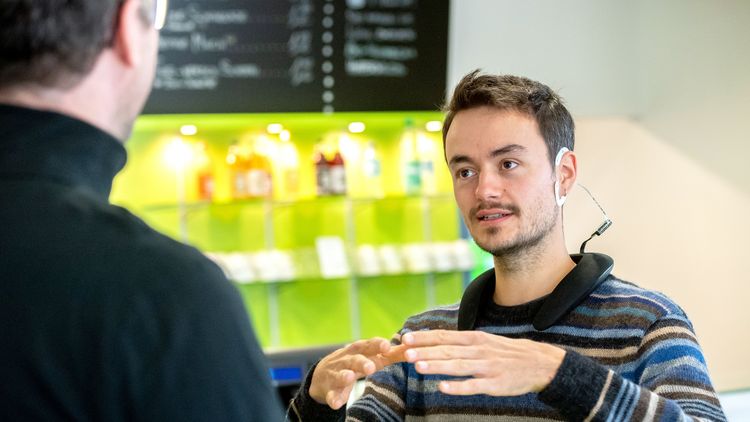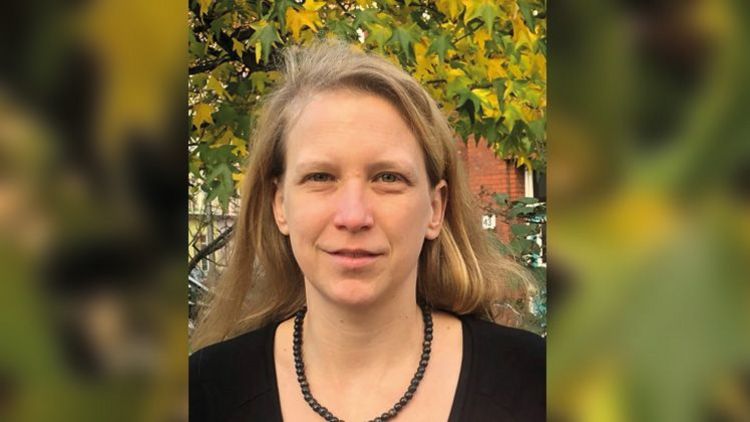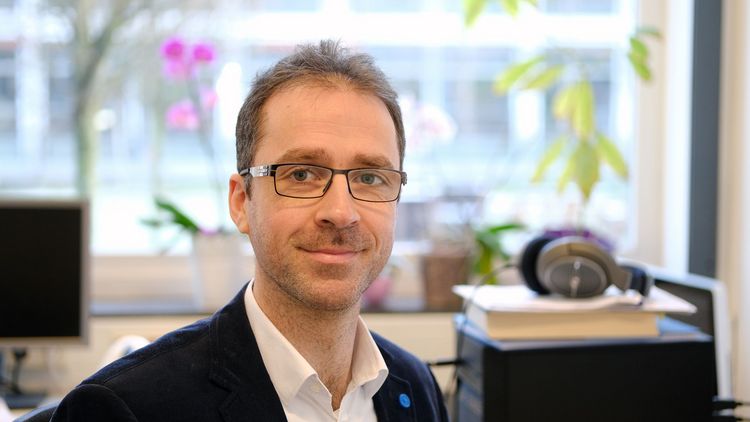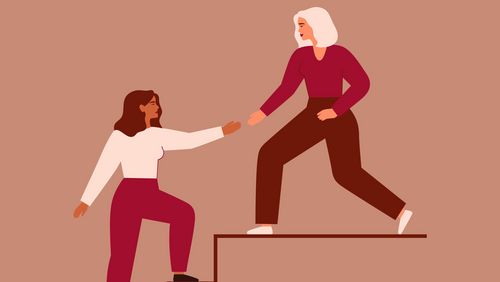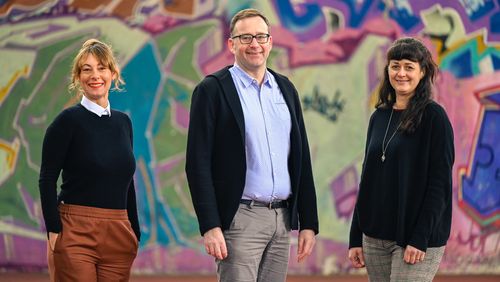Since 2021, the Universitätsgesellschaft Oldenburg e.V. (UGO) has awarded an annual prize for excellent doctoral supervision. The most recent winners, Anna Levke Brütt and Martin Bleichner, explain what is important to them.
Some 1,300 doctoral candidates are currently working on their doctoral dissertations at the University of Oldenburg – and have therefore embarked on an arduous journey that generally takes four to five years to complete. A PhD is a “challenging phase in your career”, says Prof Annett Thiele. According to the Vice President for Early Career Researchers, Equal Opportunities and Diversity, who is also the patron of this award, “good, sustained and dedicated doctoral supervision” is key to completing a doctoral project successfully.
But what does this actually entail? Dr Martin Bleichner, a neuroscientist at the Department of Psychology and head of the Emmy Noether research group “Neurobiology of Everyday Life”, explains that transparency and clear communication about the general conditions of the doctorate are crucial. Beyond that, he is adamant about one thing: “Good supervision takes time” – which is why he tries to meet all his doctoral candidates regularly and to make himself available to them in other ways as well. Dr Anna Levke Brütt at the Department of Health Services Research also stresses the importance of tailoring her supervision to the needs of her doctoral candidates. “Some phases of the doctoral process require more intensive supervision than others. You have to be on top of that,” she says.
In 2022, both the head of the junior research group for rehabilitation sciences and Dr Bleichner received the “Award for Excellent Doctoral Supervision” from the UGO. At the suggestion of Vice President Thiele, the UGO presented the award for the first time in 2021, and since then it has been awarded annually. Each winner receives 1,000 euros, and the prize is awarded once a year to two supervisors; usually one representing the humanities and one representing the natural sciences. Candidates are nominated by doctoral students who are in the final stages of their programme; a jury then receives the anonymised nominations and selects the winners on the basis of a number of criteria.
Encouragement is key
The jury’s primary aim is to reward good individual supervision. It also awards bonus points if supervisors support their doctoral candidates in all aspects related to research – for example, by teaching them the principles of good academic practice, advising them on grant applications, or encouraging them to publish their own research and build their own professional network. Another key consideration is whether or not the supervisor encourages their candidates to work on their professional development – both within the world of academia and beyond, especially if it becomes apparent that research is not the right career path for a particular candidate.
As we can read in her nomination dossier, Brütt, who currently supervises eight doctoral candidates, continued to be on hand for her protégés throughout her parental leave, as she always made “time for detailed and constructive feedback”. In addition to his one-on-one meetings with his students, which he tries to hold every week, Bleichner also values the regular meetings of his six-member research group, during which the progress of the various PhD projects is discussed in detail. His nomination dossier highlights the good atmosphere in the research group and his commitment to creating a “constructive and pleasant working environment and a sense of team spirit”.
On top of that, he also organises individual two-hour meetings with each group member every six months, which are less about research and more about development opportunities and goals. They are also an opportunity to discuss the strengths of and challenges faced by the individual doctoral candidates. “My experience of these discussions is very positive, because it often becomes clear where someone has developed and improved,” he says.
To encourage networking among doctoral candidates, the neuroscientist set up a Journal Club and a Writing Club. At the Journal Club, participants discuss current preprints in their field of research and provide feedback; at the Writing Club, doctoral candidates can work with others to advance their own research. For Bleichner and Brütt, encouraging their doctoral candidates to attend conferences and to establish networks both within and outside the university is par for the course. Brütt, who holds a post-doctoral degree (habilitation), is also involved in the German Network for Health Service Research as a spokesperson for the research group on the promotion of early-career researchers.
By the end of their doctorate, everyone should be well trained
For her, a doctorate is a “complete package”, ideally comprising a wide range of skills. Research training groups, graduate centres and academies as well as graduate schools “also make an important contribution to the further development of junior researchers,” she emphasises. And, of course, those who do not wish to pursue a career in academia also need help navigating the waters; for Brütt and Bleichner, this is just as important. “By the end of their doctorate, they should be well trained and know in which direction they want to go,” he explains.
Bleichner is aware that his Emmy Noether research group, which is funded by the German Research Foundation, provides good conditions for doctoral candidates. “For one thing, I have few teaching obligations and can therefore spend more time exchanging ideas with my colleagues than many other researchers at the University,” he says. He also has a strong personal interest in the research topics, as they are also part of his own project. “So these are issues close to my heart, which makes it easy to get involved.”
Another advantage of his group is the well-structured timeline of the Emmy Noether project. By limiting the doctoral projects to three years, everyone knows what can be achieved in that time. “On many projects, people are always coming up with new ideas about what else could be investigated, which is why many doctoral projects drag on for so long,” he says.
The neuroscientist is pleased that the award is helping to raise awareness of the importance of doctoral supervision: “Several people have already approached me to find out how I do it and what I think is important,” he says. Anna Levke Brütt also welcomes the increased recognition of good doctoral supervision at the University. “Supervising doctoral candidates tends to be less appreciated and less visible than your own research work. Yet it’s a fundamental part of your job.”



